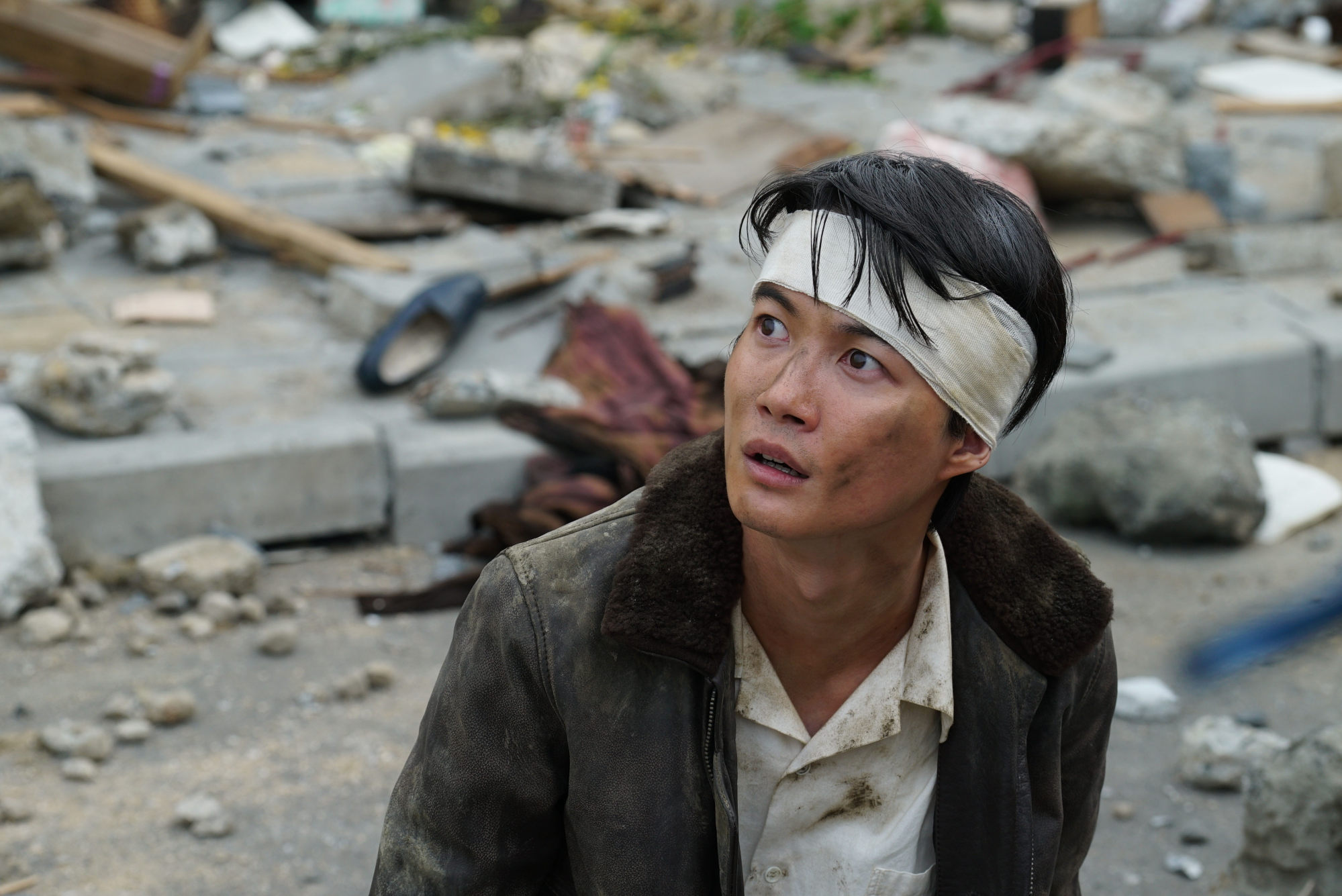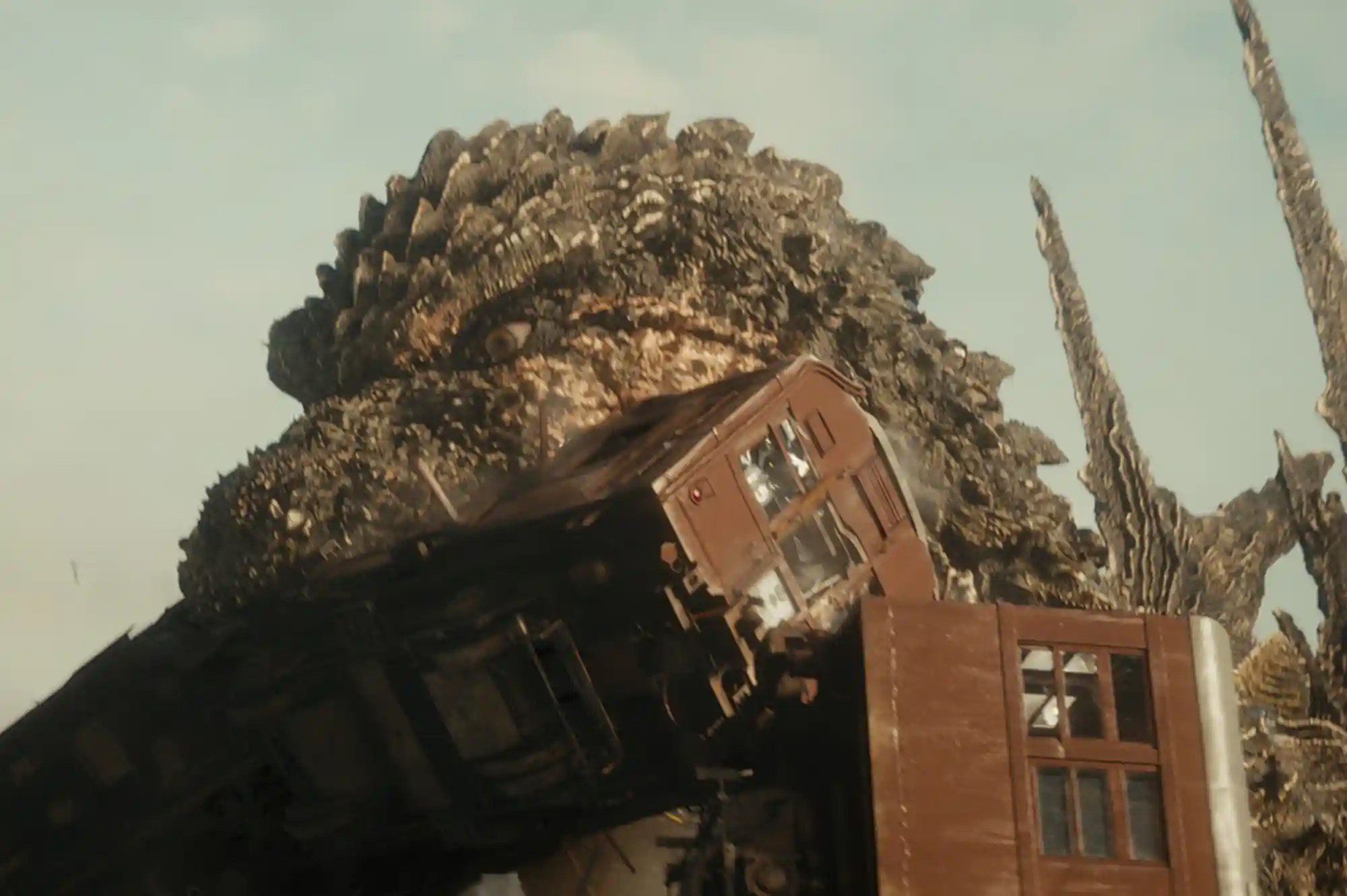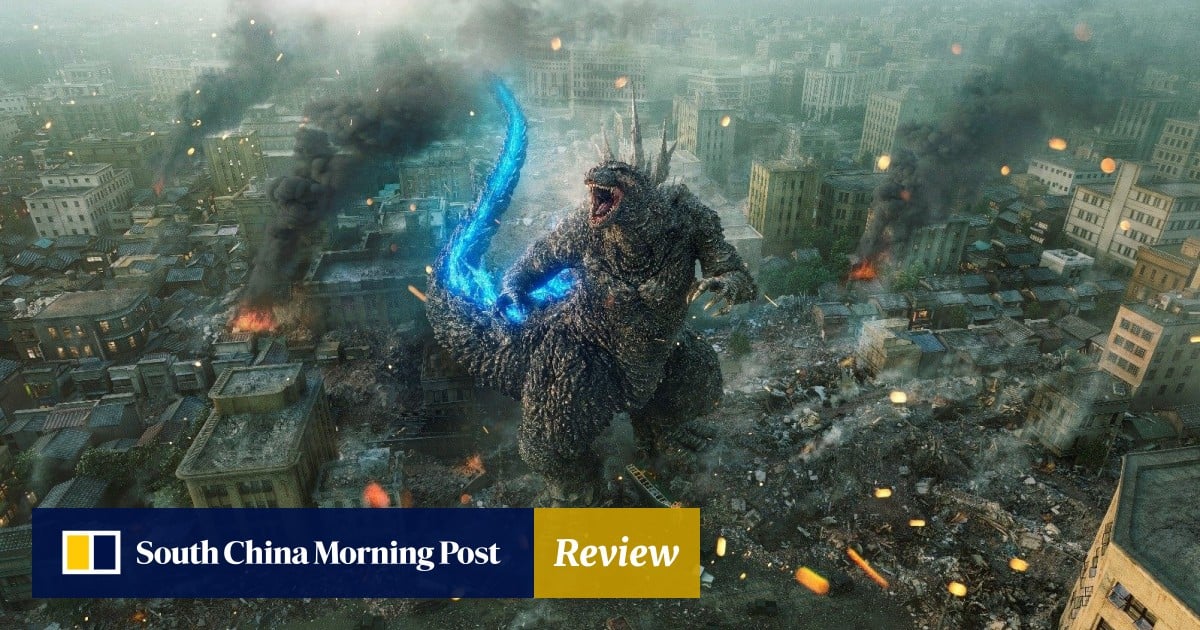4/5 stars
The 37th film in the Japanese blockbuster franchise, and the 33rd produced by Toho Studios, Godzilla Minus One turns the clock back to the late 1940s as it dramatises a destructive attack from the king of the monsters on a country still reeling in the aftermath of World War II.
Written and directed by Takashi Yamazaki, who also oversees the film’s copious visual effects, Godzilla Minus One is as much a lavish period drama about a country rediscovering a sense of national worth as it is an epic kaiju [monster] spectacle.
Disgraced kamikaze pilot Koichi Shikishima (Ryunosuke Kamiki) has been living in shame ever since he refused to sacrifice himself and die the honourable death that his military rank dictated.
He shares his modest home with Noriko (Minami Hamabe), a young woman he saves from the authorities, together with a newborn baby she pulled from the debris of their bombed-out neighbourhood, but Koichi’s self-loathing prevents him from marrying her.
He is granted an opportunity to redeem himself, however, after landing a job on a minesweeper shortly after the end of the war. It is dangerous work, but pays well, and soon leads him into direct contact with the marauding sea monster.

In a sequence that owes a sizeable debt to Steven Spielberg’s Jaws, Koichi and the rest of the motley crew attempt to see off the beast using mines recovered from the ocean, but their efforts do little more than anger Godzilla, who heads for shore and the streets of Tokyo.
As with many recent entries in this record-breaking franchise, Godzilla Minus One is not a sequel, nor, as its title might suggest, a prequel, but the latest chapter in a series that thrives on continuous reinvention.
Ishiro Honda’s 1954 original is understandably a frequent touchpoint for Yamazaki, not least during Godzilla’s destruction of the newly redeveloped district of Ginza.
Top 10 Godzilla films from the Japanese series
Top 10 Godzilla films from the Japanese series
The towering lizard treads an uncannily familiar path of destruction through the bustling shopping district and across busy train lines, as composer Naoki Sato reintroduces Akira Ifukube’s iconic score to winning effect.
Also significant is 2001’s Godzilla, Mothra and King Ghidorah: Giant Monsters All-Out Attack, in which Godzilla is propelled by the ghosts of Japan’s war dead searching for revenge.
The film has received criticism in some quarters for pushing a pro-military agenda, but the protagonists of Godzilla Minus One are united in vehement criticism of their government, which pressured so many ordinary citizens into wasting their lives for a questionable cause.

In their stand against Godzilla, conversely, they mobilise voluntarily against a single, recognisable threat, and in doing so, deliver some of the most spectacular showdowns in the franchise’s 70-year history.

